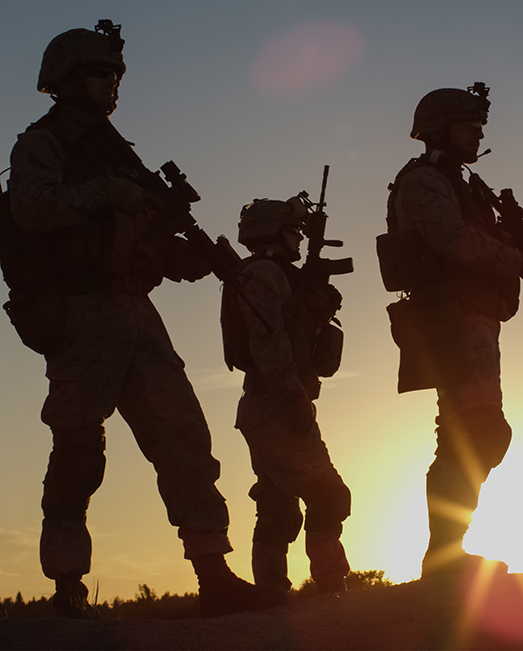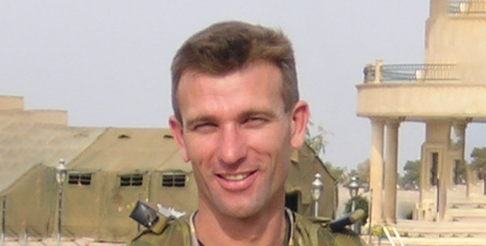Lifestyle
Copyright@ Australian Catholic University 1998-2026 | ABN 15 050 192 660 CRICOS registered provider: 00004G | PRV12008
Copyright@ Australian Catholic University 1998-2026 | ABN 15 050 192 660 CRICOS registered provider: 00004G | PRV12008

Military service is often difficult, dangerous and demanding, requiring people to dig deep and display rare resilience. But it is also true that leaving the armed forces and re-entering civilian life can be a perilous period for veterans.
While most go on to find fulfilment as productive members of the wider community, for some, the goal of forging a new life is challenging.
As has been detailed in the interim report of the Royal Commission into Defence and Veteran Suicide, transition can be “a difficult and disrupting time”.
The cascade of changes that occur during this period can increase the risk of suicide. The interim report identified 1,273 deaths by suicide between 2001 and 2019, and of these, 1,062 were ex-serving Australian Defence Force (ADF) members.
So, what can be done to smooth the pathway to civilian life? And what role should Australia’s universities play in this process?
According to ACU's Andrew Condon, a former Army Colonel who served in the ADF for almost three decades, higher education plays a key role.
“Universities are in a strong position to create positive pathways through higher education,” says Condon, pointing to ACU’s submission to the Royal Commission and its emphasis on the proven benefits of further study.
“Higher education not only improves employment prospects for veterans and families, who in their new careers go on to be contributing and valued members of society, it can also give them purpose, a sense of community, and a new role in life. These are all powerful preventative factors to a veteran sliding down the wellbeing curve toward suicide.”
As ACU’s first-ever Industry Professor for Veterans and Their Families, Andrew Condon’s chief task is to improve opportunities for those in the veteran community to make successful transitions.
In the wake of the interim report’s release, we sat down with Andrew to consider the problems it identified, and discuss some potential solutions going forward.
“I am glad you included families of veterans. Where a veteran has a family, they need to be considered as a package if the veteran is going to have a successful transition.
“Uncertainty around career is something that people in the civilian community take for granted, but it is completely foreign to most in the ADF. This uncertainty is just one of the aspects of transition that need to be understood and considered when looking at ways to enhance the likelihood of a successful transition.
Of the thousands who leave the service every year, many are discharged for medical or other involuntary reasons, meaning they’re commonly dealing with ongoing health issues that require a claims process. That is often not timely and can be complex.
At the same time, they have to find employment and purpose, and that means working out what they have in terms of skills, knowledge and experience that is transferable to civilian employment. It means translating their military values and training into language understood by civilian employers, while integrating into a local community, and building social connections to develop a new identity and a sense of belonging.”
“All those factors you have just mentioned are powerful ‘protective factors’ for veterans while they are serving. Rates of suicide in the ADF are well below the general Australian population for the same age and gender demographics, but those statistics are reversed after transition. There is a strong hypothesis that those protective factors while in service contribute to the lower suicide rates in the ADF, and the loss of those protective factors after transitioning out of the ADF are a strong contributor to the higher suicide rates after transition.
Thus, universities can play a role in quickly re-establishing those protective factors for veterans and their families by recognising how important those protective factors are, and implementing programs to establish protective factors relevant to veterans post-discharge.”
“Totally agree. As per the ACU submission, consideration should be given to an equivalent of the United States’ GI Bill. This would help to ensure that Australia’s society and economy gets a return on its investment in the training, leadership development, values and experience during a veteran’s military career.
Employment programs for veterans are well intended, but they often lack a broader consideration of a future career and what that career pathway may look like. Career development needs to be considered as an ongoing effort for a veteran’s working life, going beyond the first job after leaving the ADF.”
“Universities are in a strong position to create a pathway, but the barriers to such a pathway need to be recognised and overcome to set up veterans and families for success as students.
The most recent census tells us that less than 50 per cent of current veterans completed Year 12, and that means they don’t have an ATAR, which is a key barrier to them entering higher education-based careers.
Transition to life as a student needs some investment. Career counselling should begin once a young Australian joins the ADF, and universities can then play a key role in continuing career counselling to veterans when they move into higher education. Veteran-specific support for these students will enhance course completion rates.”
“We want to do all we can to set up veterans for success as students. Student veterans often haven’t been in a formal academic environment since high school. Thus, academic skills such as note-taking, essay-writing, referencing, exam study preparation and technique are all things that they often won’t be familiar with.

Andrew Condon, 2004.
These are some of the practical issues covered in the Veteran Transition Program, but you specifically asked about navigating the cultural shift, which is also key in setting up a veteran for success in transitioning to life as a student.
Student veterans will have had a very codified lifestyle in the military, with a strong sense of professionalism and discipline to everything they have done. They will be keen to fit in to campus life and learn what that means. As one ACU staff member pointed out to me, while the veteran students are quick to adopt the dress code of their fellow students, they can still often be identified on campus as they are the students sticking to the footpaths and not walking across the grass.”
“There are always going to be a range of issues, often unique to each circumstance, but not always. I have already mentioned the issue of the loss of protective factors after leaving the ADF, and this is why transition is key in ensuring those protective factors are re-established quickly in a veteran’s new life. Purpose, belonging, contributing, feeling valued, family and social connections are going to be, in my view as a non-clinician, key elements of establishing protective factors against suicide.
The group of veterans who are going to struggle to quickly transition and re-establish these protective factors are those who have had to leave the ADF for involuntary reasons, and thus are not transitioning at the time or circumstances of their choosing. This group is usually about 1,000 a year, mostly due to medical reasons. Veteran suicide statistics tell us this is the group that are at the greatest risk of suicide.
These veterans are often still working through rehabilitation, pain management and other medical-related matters, while often also dealing with outstanding claims to the Department of Veterans’ Affairs. These matters can extend the period of transition to a new career, and sometimes end up preventing a successful transition.”
“I would propose that recognising those discharged for involuntary reasons as the highest suicide risk group of veterans is incredibly important. We need to invest in building their protective factors, and recognise their ongoing treatment is best undertaken by a veteran-specific health system. When there is a family involved, they need to be considered as part of the veteran package and support system.
We also need to change the approach of veteran employment programs to focus on veteran careers in the long-term, and include the appropriate educational pathway for that career option. We need to facilitate social connection in a local community during transition, for both the veteran and their family.
Investment in research is also important. Through research, we can better understand the most effective preventative and early intervention strategies.”
“The first phase of the Royal Commission has focused on what I would call ‘problem definition’, learning what has gone wrong and what has worked, but also allowed lived experience witnesses to tell their story, in many cases providing an opportunity for restorative justice and healing.
The next phase is to identify the solutions and systemic changes to address the problems identified in the first phase. Opportunities such as a Royal Commission for the veteran and family community are rare, expensive and difficult on many levels, particularly for those with lived experience, but importantly, they are a powerful force for change and a force for good.
This is now the opportunity and time for the veteran and family community, and others like ACU, to provide some thought leadership in this space to propose solution options for consideration by the Royal Commission.”
“At a higher systems level, I would be keen to see an approach to lock in meaningful change that will have a genuine impact on veteran suicide. I would like to see consideration given to legislation that locks in the desired outcome of systemic changes recommended by the Royal Commission, in terms of measurable targets of reduced veteran suicides. Such legislation could also appoint a single minister the responsibility to implement the changes, ensuring that minister has the authority and resources to achieve those changes.
However, I do want to say 2024 is a long way away in terms of the number of veterans we may lose due to suicide by that time. There must be an expectation that where solutions can be identified by stakeholders and implemented, they should not be delayed until the Royal Commission finishes its work.
Can I just finish by saying, we cannot expect the Royal Commission to find an effective way forward to reducing veteran suicide if the veteran and family community, and other stakeholders, don’t now turn their efforts to generating ideas, concepts, models, plans, programs, systems of monitoring and accountability to prevent veteran suicides.”
Learn more about the Veteran Entry Program, Veteran Transition Program, and Student Veteran Services at ACU.
Copyright@ Australian Catholic University 1998-2026 | ABN 15 050 192 660 CRICOS registered provider: 00004G | PRV12008